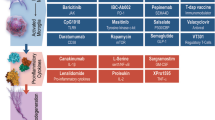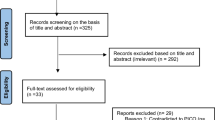Abstract
Objective
To observe the effects of modified Wuzi Yanzong Granule (加味五子衍宗颗粒, WYG) on memory function and the activity of serum superoxide dismutase (SOD), malondialdehyde (MDA) levels, leukocyte mitochondrial DNA (mtDNA) deletion rate and β-amyloid protein1–28 (A β1–28) in patients with mild cognitive impairment (MCI).
Methods
Thirty-six patients with MCI were selected based on the internationally recognized Petersen’s criteria, and equally and randomly assigned to two groups. The treated group was treated with WYG and the control group was treated with placebo for 3 months. In addition, 20 healthy subjects were included in the study as the normal control group. Changes of memory function, SOD activity, MDA content, leukocyte mtDNA deletion rate and A β1–28 content were observed before and after treatment.
Results
Compared with the normal control group, the memory quotient and SOD activity in patients with MCI decreased significantly (P < 0.01), while MDA, A β1–28 levels and the leukocyte mtDNA deletion rate increased significantly (P < 0.01). After treatment, levels of memory quotient and serum SOD activity increased while the serum MDA level, leukocyte mtDNA deletion rate and A β1–28 level decreased in the treated group compared with those before treatment (P<0.01, P<0.05). Meanwhile, leukocyte mtDNA deletion rate and A β1–28 content in the treated group were all lower than those in the control group (P<0.05).
Conclusion
WYG could improve memory function in patients with MCI and the therapeutic mechanism is possibly related to the increased activity of anti-oxidase, the improved free radical metabolism and the alleviation of leukocyte mtDNA oxidation damage. WYG shows clinical significance in delaying the progression of MCI.
Similar content being viewed by others
References
Zhou HW, Zhang JJ. Oxidative damage and mild cognitive impairment. For Med Sci: Neurol Neurosurg (Chin) 2004; 5(31): 468–470.
Huang Y, Dong Z. Oxidative stress and Alzheimer’s disease. Chin J Clin Pharmacol Ther (Chin) 2005; 10(5): 485–488.
Fu H, Wang XM, Liu GX, et al. Study on relationship between mild cognitive impairment and oxygen free radical metabolism, acetylcholinesterase. Chin J Gerontol (Chin) 2004; 1(24): 17–18.
Petersen RC, Smith GE, Waring SC, et al. Mild cognitive impairment: Clinical characterization and outcome. Arch Neurol 1999; 56: 303–308.
Xu SL, Wu ZY, Sun CH, et al. Clinical memory scale manual. Beijing: Psychological Research Institute of Chinese Academy of Medical Sciences, 1996: 27–35.
Wang XM, Fu H, Liu GX, et al. Clinical study on treatment of mild cognitive impairment by modified Wuzi Yanzong Granule. Chin J Integr Traditi West Med (Chin) 2004;5(24): 392–395.
Ye N, Peng H. Current situation and prospect of mild cognitive impairment. Chin J Clin Rehabil (Chin) 2004;16(8): 3111–3113.
Zhang MX, Xia JH. Bioenergetic and oxidative stress in neurodegenerative diseases. Life Sci Res (Chin) 2000;4(4): 295–301.
Rinaldi P, Polidori MC, Metastasio A, et al. Plasma antioxidants are similarly depleted in mild cognitive impairment and in Alzheimer’s disease. Neurobiol Aging 2003; 24: 915–919.
Mecocci P. Oxidative stress in mild cognitive impairment and Alzheimer disease: a continuum. J Alzheimer’s Dis 2004;6: 159–163.
Frost D, Gorman PM, Yip CM, et al. Co-incorporation of A beta 40 and A beta 42 to from mixed pre-fibrillar aggregates. Eur J Biochem 2003; 270: 654–663.
Jia JJ, Wang LN, Tang HC, et al. Physiologic reference level of serum beta-amyloid protein1–28 in Chinese adults. Chin J Clin Rehabil 2006;14(8): 65–67.
Zhang DP, Wang Q, Chen YB. Effect of beta-amyloid neurotoxicity in the onset of Alzheimer disease. Chin J Clin Rehabil (Chin) 2005; 25(9): 174–175.
Wang LN. Research progress on mild cognitive impairment of aged people. Chin J Geriatr (Chin) 2005; 24(1):6–8.
Author information
Authors and Affiliations
Corresponding author
Additional information
Supported by Capital Key Science and Technology Program for the Development of Medicine (No. 03-II-04)
Rights and permissions
About this article
Cite this article
Wang, Xm., Fu, H., Liu, Gx. et al. Effect of modified Wuzi Yanzong Granule (加味五子衍宗颗粒) on patients with mild cognitive impairment from oxidative damage aspect. Chin. J. Integr. Med. 13, 258–263 (2007). https://doi.org/10.1007/s11655-007-0258-7
Received:
Issue Date:
DOI: https://doi.org/10.1007/s11655-007-0258-7




